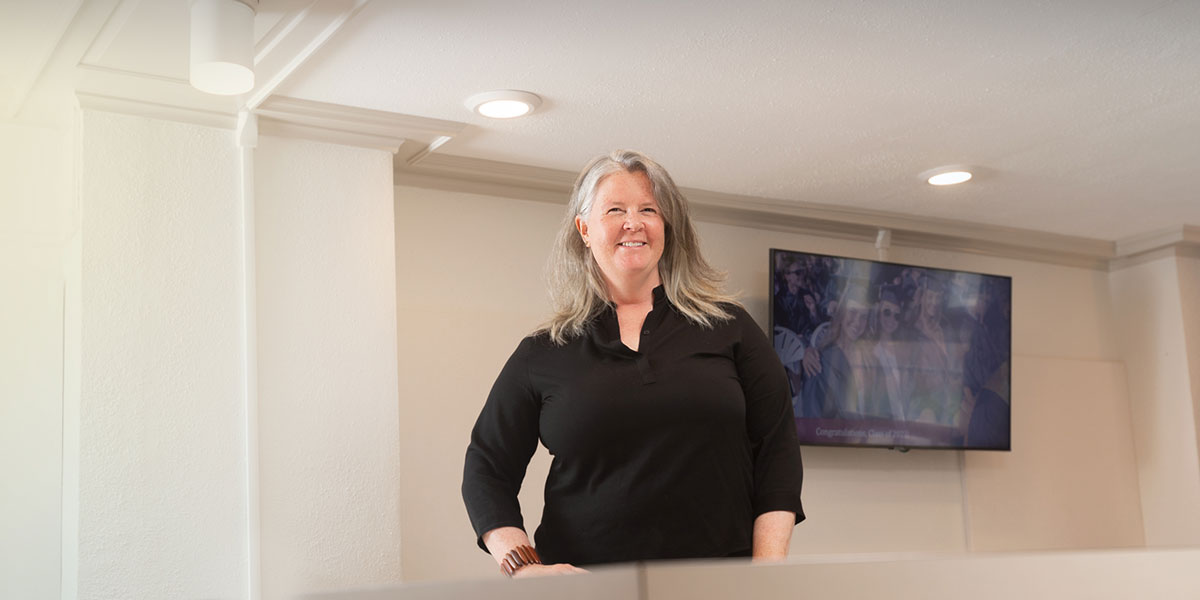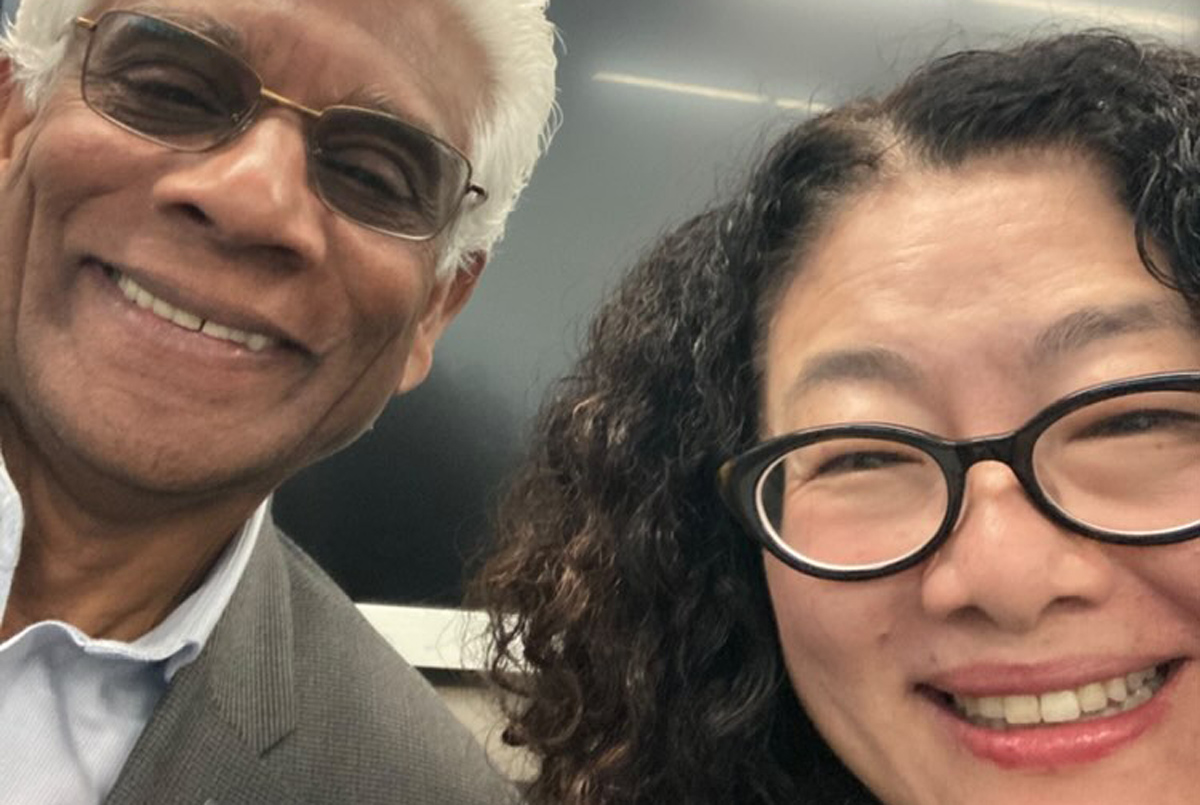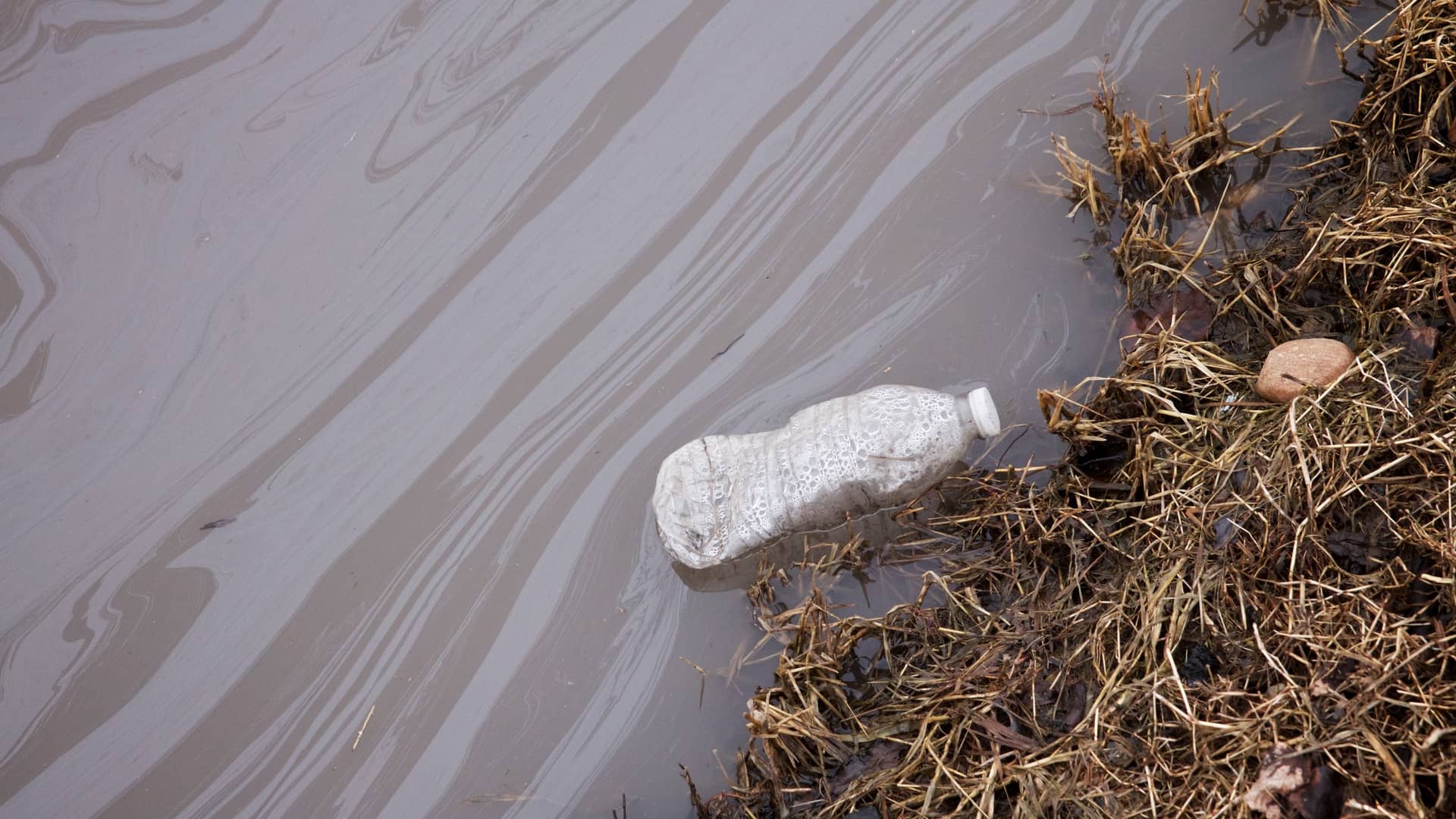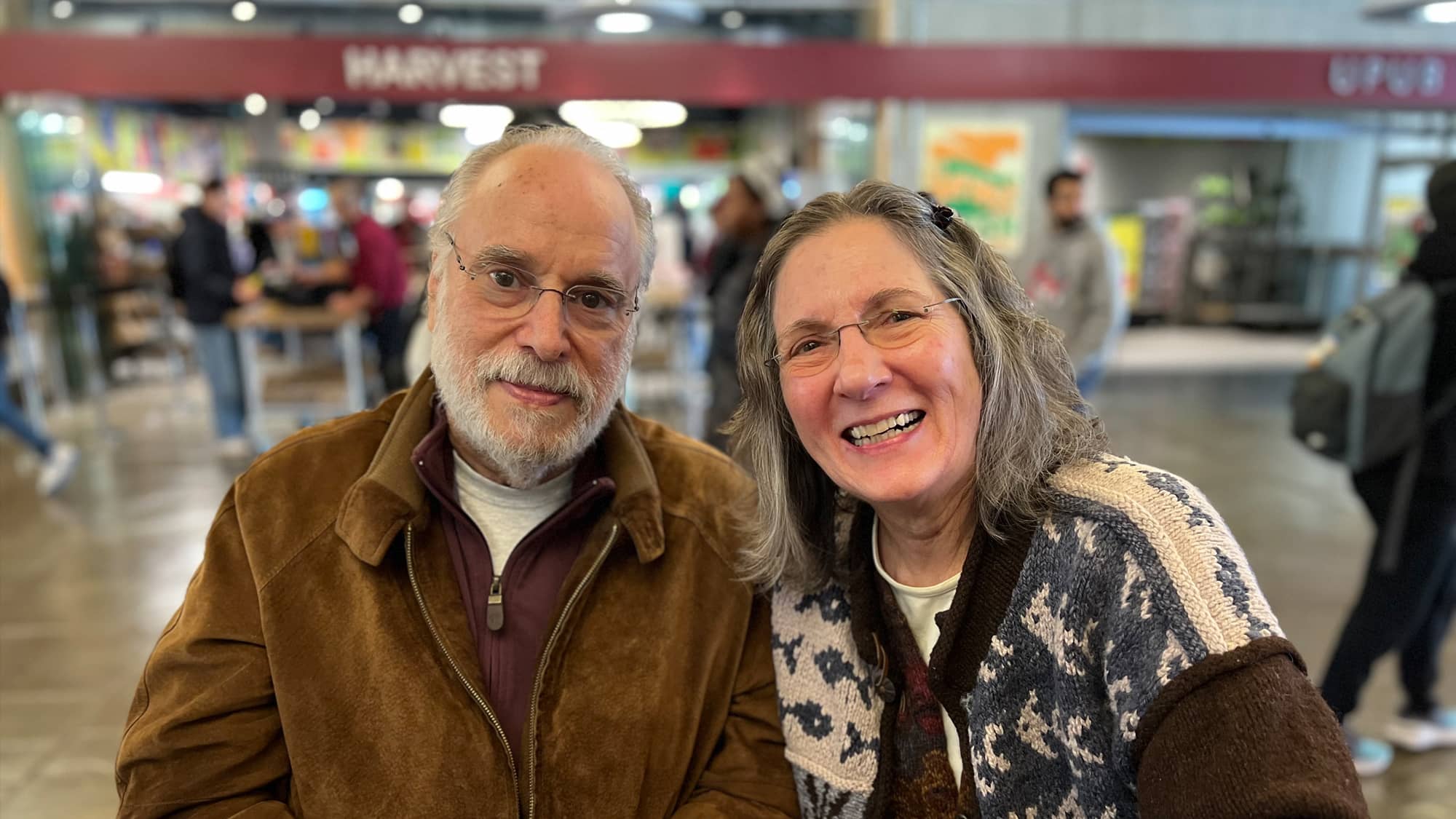School of Public Health and Health Sciences Professor Elizabeth Evans studies and promotes interventions to help people with substance abuse disorders.

UMass Amherst Professor of Community Health Education Elizabeth Evans always knew she wanted to make a difference in the world. As an undergraduate at the University of California, San Diego, Evans participated in research that exposed her to the struggles of individuals with opioid and other substance abuse disorders. The experience was transformative and shaped the trajectory of her career.
“As an undergraduate, I talked to people with addiction in jail settings. It humanized what at the time was called ‘the war on drugs’ and made me question how public policies could better help this population,” Evans says. “These experiences caused me to be very interested in developing new solutions to well-known problems in the United States.”
Now, Evans focuses her research on how health care systems and public policies can better serve individuals at risk for opioid and substance use disorders.
She notes that inequities in our public systems create unfair circumstances for people with addiction, making it hard for them to access the care that could make a difference.
“Many people with opioid use disorders spend years in jail or prison, not able to access evidence-based treatment that could help them recover,” she says. “There is a disconnect. We know what can work to help people recover, but people with those problems often don’t encounter those opportunities, especially within the justice system.”
At UMass, Evans has had the opportunity to engage with local communities, conducting research with the potential to create change in Massachusetts and beyond.
An example of Evans’s work in action involves an innovative program implemented in jails across Massachusetts. The program follows a new state law mandating that jails provide evidence-based medications to treat opioid use disorder. Evans conducted a five-year study called MassJCOIN, funded by the National Institutes of Health, to assess this program and generated results that showed people who received health care through the program experienced better outcomes. Based on these promising findings, the program has since been implemented more widely across Massachusetts and in other states. Most recently, Evans was funded by NIH to lead MassJCOIN II, and two other projects, for a portfolio of timely research that is designed to generate new knowledge on how to improve the health of justice-involved populations at risk for overdose and infectious disease.
Inspiring Tomorrow’s Leaders
Evans says that student research assistants benefit greatly from working on these projects, and students give so much back to the projects and their communities in return.
“Students are so excited to be a part of [this work] that is happening in their own community. They learn about it in the abstract in their public health classes, then can see and study it in the real world. This allows them to put into action what they’re learning in class, then take what they see in the community and bring it back to class,” she says. “[The experience] often serves as a steppingstone for students figuring out what they want to do after graduation. It has culminated in several students going on to medical school, law school, or careers in public health, social work, nursing, and psychology.”
Undergraduate research assistants Danish Humayun ’26 and Lily Bialkin ’25 agree. Both students are pursuing bachelor’s and master’s degrees as part of the UMass Amherst 4+1 Accelerated Master of Public Health (MPH) program.
Humayun, a senior from Belchertown, Massachusetts, plans to attend medical school after completing his MPH, with the goal of integrating medicine and public health research. He worked with Evans on research related to the Chicopee and Holyoke Access to Treatment and Services (CHATS) Project.
“The CHATS program puts recovery coaches directly in the courts [in Chicopee and Holyoke]. Anyone can engage with them for help with substance abuse, mental health disorders, homelessness, food stamps, or to support recovery. It’s a pretty novel program. Most people come to court to get punishment, not help. We’re trying to change that.”
Danish Humayun ’26
Humayun worked as part of a team evaluating the program to refine it, study outcomes, and document key components of it for replication in other district courts in Massachusetts. He says that he will take the knowledge he gained working with Evans with him throughout his education and career.
“I learned how to be part of a professional team, not just a group project,” says Humayun. “I also previously had no idea what qualitative research was. Everyone thinks of wet lab research, but no one thinks about interviews, focus groups, and anecdotal stories. I’ve gained a new appreciation for this type of research.”
Bialkin, a second-year master’s student from Worcester, Massachusetts, currently works with Evans on the evaluation of the Healing Franklin Country program, which is helping to ensure people incarcerated in the Franklin County Jail have access to medication and other supports for treating opioid use disorder, both during incarceration and also after release in the community.
“When I first started taking data management classes, I didn’t think it was applicable to the real world. Dr. Evans has two research fellows who have helped me with learning how to code and how to analyze and interpret data. It has really helped so much in my classes. I’ve also learned what it’s like to be part of a program. A lot of public health education is hypothetical. Working on a program is so rewarding. We make such a difference.”
Lily Bialkin ’25
Evans agrees with Bialkin that it is rewarding to see the positive impacts of this work.
“I saw how Massachusetts innovated public health programming in jails and courts to address the opioid epidemic. We at UMass learned in particular that this big policy change in jails actually saved lives and also made communities safer. It’s worth spreading the program elsewhere,” Evans says. “[At UMass], I have valued the many opportunities to engage in public health on and off campus and make a difference in the world.”
Interested in supporting public health at UMass Amherst? Make a gift today to the SPHHS Priorities Fund.
- Magnify Impact
- School of Public Health and Health Sciences



